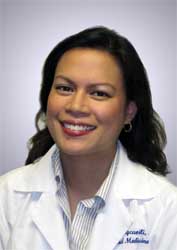By: LYN N. DEA, D.O.
Your MPCP healthcare provider is smart and experienced. However, even the most skilled professional may need your help to make sure all of your health concerns are met. Here are 10 questions to ask during appointments to make sure your provider can give you the best care.
1. How can I have better nutrition and get the exercise I need?
Good nutrition and exercise are key to good health, preventing some diseases and helping you maintain a healthy weight. If you want to eat better, your healthcare provider can recommend some guidelines, and they may also suggest that you see a nutritionist. Your exercise needs vary depending on your age and other factors – for example, ‘I have a bad knee, so what exercise can I do to keep my heart healthy?’ Your provider can work with you to create an exercise plan that fits your situation.
2. Can you explain what you said some more?
Providers and patients often understand health issues differently. If your provider tells you something, but you’re not clear about it, ask for an explanation. That will prevent misunderstandings and give your treatment a better outcome.
3. Will this treatment address what matters most to me?
Letting your health professional know what really matters to you – whether it’s a particular problem like joint pain or broader issues — can guide their decisions about your care. And prescribed treatments, such as new medication, may have side effects that impact your lifestyle, so it’s important to discuss it.
4. How worried should I be about these symptoms?
Always tell your provider about symptoms and why you’re concerned about them. For example, if you have headaches, are you worried you may have a brain tumor? Honestly discussing your fears with your provider lets them be addressed head-on, hopefully leading to a solution and giving you peace of mind.
5. What is the purpose of this medication?
Many times, patients accept a provider’s drug recommendation without fully understanding why. Your provider understands why they’re prescribing a medicine, but you’ll feel more confident taking it if you are clear on the dosage, how to take it, potential side effects and possible interactions with other drugs you’re taking.
6. What is the purpose of this test?
If your doctor is running a test or recommending a screening, you should know the reason. Asking will help make sure you’re prepared for the test — for example, some might require fasting beforehand — and will eliminate any surprises.
7. Which internet resources can I trust for medical information?
The internet is full of websites offering medical advice and promoting health products, but not all of them are legitimate or well-informed. Ask your provider about which sites they trust, so when you search medical topics, you can be sure of getting reliable information.
8. Can I try a different medication?
Most medications your provider prescribes work just fine. But there are times when your condition doesn’t improve, or you start experiencing unpleasant side effects. Tell your doctor about your concerns since there may be other options that will work better for you.
9. Is it okay for me to take these vitamins/dietary supplements?
Go online or open a magazine, and you’re likely to see ads for vitamins and other dietary supplements. Some of them make amazing health claims, but don’t be fooled by glowing testimonies. Most people don’t need mega-doses of vitamins, and they can be dangerous. And dietary supplements are not regulated by the FDA, so you don’t know if they really work, could have unhealthy side effects, or might interfere with medicine you’re taking. Ask your provider whether taking these things are helpful to you.
10. How does my family history affect my health risks?
All of us inherit characteristics from our parents. Unfortunately, you may get some genes that put you at higher risk for health issues, such as heart disease and cancer. Tell your provider about your family’s medical history, ask how this history may affect you, and what you can do to stay as healthy as possible. Your doctor may recommend screenings or lifestyle changes to lower your risks and keep you well.
During an office visit, your time with your provider is limited. See this video about getting the most out of appointments.
 Dr. Dea is a Maryland Primary Care Physicians, LLC partner and is certified by the American Board of Family Medicine. She earned her medical degree at the Philadelphia College of Osteopathic Medicine. Dr. Dea cares for patients in MPCP’s Annapolis office.
Dr. Dea is a Maryland Primary Care Physicians, LLC partner and is certified by the American Board of Family Medicine. She earned her medical degree at the Philadelphia College of Osteopathic Medicine. Dr. Dea cares for patients in MPCP’s Annapolis office.






